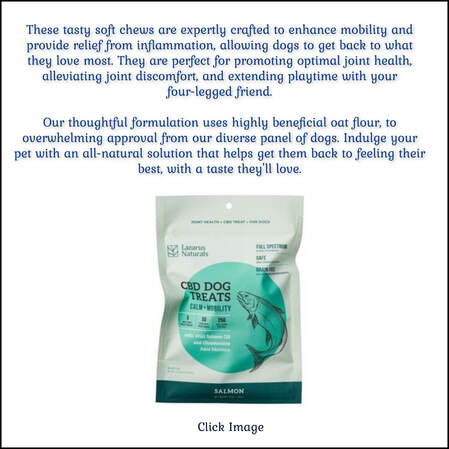
By Natural Dog Health Remedies
Coughing is rather common in dogs and can be caused by numerous possible reasons, some of which can be serious. Timely diagnosis and appropriate treatment are therefore essential. This page looks at some possible causes of dog coughing; things to look for in a coughing dog; and some natural remedies that are effective in soothing a cough.
Similar to sneezing, dog coughing is a way for the body to get rid of foreign particles and infectious bacteria from the respiratory tract. Sometimes mucus may be produced to bind the foreign particles and prevent them from moving deeper into the lungs, resulting in a "moist cough".
There are a number of possible reasons that may cause coughing in dogs, some are more serious than others.
With that in mind, dog coughing should not be taken lightly - if your dog is coughing, especially if the cough is severe and chronic, be sure to take her to a vet for a thorough check-up.
Causes of Dog Coughing and Natural Remedies That May Help
Possible Causes of Coughing in Dogs
Here is a list of some possible causes of coughing in dogs:
Kennel Cough
If your dog has dry, hacking coughs, but is otherwise fine, she may have contracted kennel cough or acute tracheobronchitis. Most cases of kennel cough are not serious and the dog will get over the cough in 1 to 2 weeks.
Allergies
Dogs with inhalant allergies sometimes may have a "moist cough". This is a way for the body to get rid of the allergen (e.g. pollen, cigarette smoke, etc.) that may have entered the respiratory tract. The coughing may subside once the dog is removed from the source of the allergen.
Parasites
Another common cause of coughing in dogs is internal parasites such as roundworms, hookworms, and heartworms. Larvae of intestinal parasites such as roundworms and hookworms can trigger coughing (called a verminous cough) when they migrate up the intestine into the respiratory tract.
Heartworms also cause coughing when the immature heartworms are transferred to the dog's circulatory system by an infected mosquito. The parasites migrate into the lungs, causing the dog to cough (a dry to moderately moist cough) which usually gets worse when the dog is lying down. Heartworm infection is potentially life-threatening so prevention is essential if your dog lives in an area where mosquitoes are plentiful.
Heart Disease
Dogs suffering from heart disease, such as congestive heart failure, can develop coughing as well. The coughing is caused by the enlarged heart, which compresses the airway, resulting in dry, unproductive coughing bouts.
Tracheal Collapse
Dogs that are overweight, old, or have suffered neck injuries, as well as toy breeds of dogs are prone to tracheal collapse, causing inflammation of the membranes which are lining the trachea and resulting in a dry, hacking cough. This condition is usually treated using medications or surgery.
Characteristics of Some Dog Breeds
Brachycephalic dogs (dogs with "pushed-in" faces such as pugs, bulldogs, Pekingese, etc.) that snore often suffer from a condition called "elongated soft palate". It means that the soft palate at the back of the throat is too long and it protrudes into the airway, causing not only respiratory problems but sometimes coughing as well. This condition is treated using medications and sometimes surgery.
Dogs suffering from heart disease, such as congestive heart failure, can develop coughing as well. The coughing is caused by the enlarged heart, which compresses the airway, resulting in dry, unproductive coughing bouts.
Tracheal Collapse
Dogs that are overweight, old, or have suffered neck injuries, as well as toy breeds of dogs are prone to tracheal collapse, causing inflammation of the membranes which are lining the trachea and resulting in a dry, hacking cough. This condition is usually treated using medications or surgery.
Characteristics of Some Dog Breeds
Brachycephalic dogs (dogs with "pushed-in" faces such as pugs, bulldogs, Pekingese, etc.) that snore often suffer from a condition called "elongated soft palate". It means that the soft palate at the back of the throat is too long and it protrudes into the airway, causing not only respiratory problems but sometimes coughing as well. This condition is treated using medications and sometimes surgery.
Lung Tumors
Sometimes, coughing in dogs may mean something more serious. For example, it is common for dogs with lung tumors to have dry, hacking coughs. When the cancer is in its advanced stage, the coughs may produce small amounts of phlegm or blood. Primary lung tumors are rare; most cases of lung tumors are a result of metastasis (the spreading of cancerous cells from other parts of the body).
Distemper
The first sign of dog distemper is a dry hacking cough, accompanied by a fever of 103° to 105°. A thick, yellow discharge from the nose and eyes is also common. However, if your dog is routinely inoculated against distemper, then there is little chance for him to get infected. For more information on this disease, visit our page on Puppy Distemper.
Canine Influenza
Dogs infected with canine influenza will show signs of upper respiratory problems such as coughing and sneezing. Dog flu can also cause a dog to have a fever, sometimes as high as 106°F. Currently there are no vaccines against dog flu.
Sometimes, coughing in dogs may mean something more serious. For example, it is common for dogs with lung tumors to have dry, hacking coughs. When the cancer is in its advanced stage, the coughs may produce small amounts of phlegm or blood. Primary lung tumors are rare; most cases of lung tumors are a result of metastasis (the spreading of cancerous cells from other parts of the body).
Distemper
The first sign of dog distemper is a dry hacking cough, accompanied by a fever of 103° to 105°. A thick, yellow discharge from the nose and eyes is also common. However, if your dog is routinely inoculated against distemper, then there is little chance for him to get infected. For more information on this disease, visit our page on Puppy Distemper.
Canine Influenza
Dogs infected with canine influenza will show signs of upper respiratory problems such as coughing and sneezing. Dog flu can also cause a dog to have a fever, sometimes as high as 106°F. Currently there are no vaccines against dog flu.
Canine Pneumonia
Dogs with pneumonia also have coughing as one of the symptoms. Pneumonia can be a result of an infection, or secondary to other conditions. Visit our page on Canine Pneumonia for more information on this disease.
Things to Look Out For in a Coughing Dog
If your dog is coughing, try to observe her carefully and note down answers to the following:
Dogs with pneumonia also have coughing as one of the symptoms. Pneumonia can be a result of an infection, or secondary to other conditions. Visit our page on Canine Pneumonia for more information on this disease.
Things to Look Out For in a Coughing Dog
If your dog is coughing, try to observe her carefully and note down answers to the following:
- Is the cough an isolated incident or does it happen regularly?
- Is the cough moist or dry?
- Does the cough produce anything - mucus, blood, pus?
- Does the dog cough most when she is up and active or when she is lying down?
- Is the dog active, or lethargic?
- Is breathing hindered?
- Are the gums pink and healthy, or are they dark or bluish?
Osha root can help alleviate breathing concerns in a number of capacities. Osha root helps clear mucus from the sinuses and lungs by increasing expectoration; this relieves congestion and makes breathing easier. Osha root also increases blood circulation to the lungs, which increases dilation during constriction. For this reason, it is of particular interest as a support mechanism for emphysema, pneumonia, asthma, and allergies.
You should also try to determine the patterns and circumstances of the coughing bouts (to help your vet make an accurate diagnosis). For example,
Are the coughing bouts triggered by certain conditions, such as:
What time of day or night do the coughing bouts occur?
If there are other pets in the house, are they also affected?
When to See a Vet
Take your dog to the vet immediately if you notice the following:
Are the coughing bouts triggered by certain conditions, such as:
- air pollution;
- drinking;
- change in temperature - going out into the cold air, or entering a warm room;
- change in humidity?
What time of day or night do the coughing bouts occur?
If there are other pets in the house, are they also affected?
When to See a Vet
Take your dog to the vet immediately if you notice the following:
- the dog's breathing is hindered;
- she is very weak and lethargic;
- her gums are not pink;
- she has a moist cough and is coughing up mucus, blood or pus;
- the coughing is severe, or each coughing spell lasts more than a few minutes.
Important!
If your dog has a chronic cough and, in particular, if there are other accompanying symptoms that cause you to suspect that the cough is caused by some deeper underlying condition, take the dog to the vet for a proper diagnosis. As mentioned above, since chronic cough may be caused by serious health conditions that can be life-threatening, dog coughing should not be taken lightly.
Natural Remedies for Coughing in Dogs
Herbs can be used to effectively soothe and manage coughing in dogs. Some useful herbs include:
Mullein: Mullein is good for dry coughs such as kennel cough or chronic recurring coughs.
Marshmallow: Marshmallow (as well as slippery elm) has a soothing effect to the mucous membranes. It soothes the throat and alleviates dry coughs.
Plantain: This herb is effective in treating dry coughs.
Licorice Root: This herb strengthens the respiratory system and acts as a suppressant for coughs especially those that seem to be located in the throat or upper respiratory areas. (Do not give to dogs with heart conditions ~ H.O.P.S.)
Dogs that have weak immune systems are more likely to get infectious respiratory problems (such as kennel cough). Herbs such as echinacea, astragalus, and Oregon grape can be used to strengthen the dog's immune system.
If your dog has a chronic cough and, in particular, if there are other accompanying symptoms that cause you to suspect that the cough is caused by some deeper underlying condition, take the dog to the vet for a proper diagnosis. As mentioned above, since chronic cough may be caused by serious health conditions that can be life-threatening, dog coughing should not be taken lightly.
Natural Remedies for Coughing in Dogs
Herbs can be used to effectively soothe and manage coughing in dogs. Some useful herbs include:
Mullein: Mullein is good for dry coughs such as kennel cough or chronic recurring coughs.
Marshmallow: Marshmallow (as well as slippery elm) has a soothing effect to the mucous membranes. It soothes the throat and alleviates dry coughs.
Plantain: This herb is effective in treating dry coughs.
Licorice Root: This herb strengthens the respiratory system and acts as a suppressant for coughs especially those that seem to be located in the throat or upper respiratory areas. (Do not give to dogs with heart conditions ~ H.O.P.S.)
Dogs that have weak immune systems are more likely to get infectious respiratory problems (such as kennel cough). Herbs such as echinacea, astragalus, and Oregon grape can be used to strengthen the dog's immune system.

















